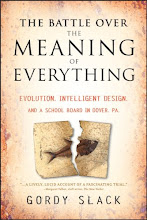 |
| IHT illustration by Matthew Richardson |
Susan Greenfield, professor of synaptic pharmacology at Oxford, looks at how new technology changes users' brains. She argues here that until now technologies have always "been a means to an end," whereas "current technologies have been converted from being means to being ends in themselves." She attribute some part of the explosion of new attention disorders to raising kids in an internet environment. Brains have an evolutionary mandate to adapt to their environments, she says. "If you take a young one and put it in an environment that is fast-paced, loud and sensory-laden, then it will adapt to that... My concern," Greenfield says, "is that we are heading toward a short attention span and a premium on sensationalism rather than on abstract thought and deeper reflection."
Greenfield quotes Eric Schmidt, the chairman of Google: "I still believe that sitting down and reading a book is the best way to really learn something. And I worry that we’re losing that."
Maria Popova, the curator behind the great Brain Pickings website, is an M.I.T. Futures of Entertainment Fellow and writes for Wired agrees that the way the web is used may be leading to diminishing attention spans and a "conflation of information and insight... The Web by and large is really well designed to help people find more of what they already know they’re looking for, and really poorly designed to help us discover that which we don’t yet know will interest us and hopefully even change the way we understand the world."
She is less pessimistic than Greenfiled about the future of web-influenced brains, though. The key, she says, is not the technology itself, but how it is employed and who determines that. Her own site, Brain Pickings, is a great example of an antidote. She also mentions apps like Instapaper and Pocket and long-form ventures like The Atavist and Byliner as good influences preserving and promoting long-form knowledge- and focus-respecting media.
Evengy Morozov, author of The Net Delusion: The Dark Side of Internet Freedom, fears that the internet is encouraging slactivism not activism, that it will, in moderator Schmemann's words, cultivate "people who think that clicking on a Facebook petition, for example, counts as a political act."
But "anyone who wears glasses, in one sense or another, is a cyborg," says Morozov. "And anyone who relies on technology in daily life to extend their human capacity is a cyborg as well. So I don’t think that there is anything to be feared from the very category of cyborg. We have always been cyborgs and always will be."
"The question is, what are some of the areas of our life and of our existence that should not be technologically mediated?"


No comments:
Post a Comment